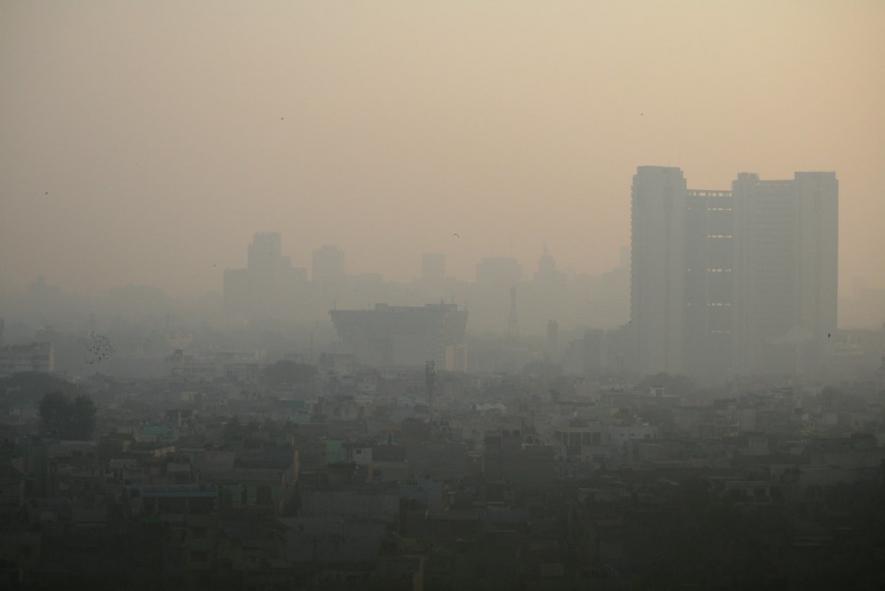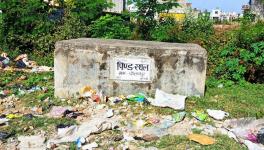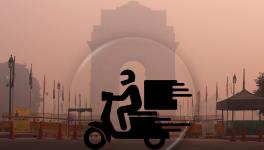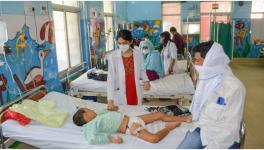Air Pollution Linked to Rise in Antibiotic Resistance, Lancet Study Shows

Representational use only.Image Courtesy: Flickr
Delhi: A recent study published in the health journal Lancet has established a connection between bacterial antibiotic resistance and air pollution, particularly PM 2.5. The study suggests that PM 2.5 contains elements of antibiotic resistance, and inhaling this pollutant can lead to an increase in the spread of antibiotic resistance. The authors of the study aimed to estimate the global premature death toll caused by resistance to antibiotics due to PM 2.5 pollution.
PM 2.5 refers to particulate matter with a diameter of 2.5 micrometres or smaller. These particles, consisting of solid and liquid elements, are of varying sizes, with some, like dust and soot, visible to the naked eye and others, such as PM 2.5, only observable under electron microscopes. Inhaling these pollutants can pose serious health risks, especially to the respiratory system.
The Lancet study correlates PM 2.5 levels with antibiotic resistance, indicating that higher pollutant levels lead to greater antibiotic resistance. These minute suspended particles, which are significantly smaller than human hair, contain antibiotic resistance elements. As these pollutants travel through the air, they can disperse antibiotic resistance elements, which can then be inhaled.
Antibiotic-resistant bacteria can withstand antibiotic treatments, rendering the drugs ineffective against them. Antibiotics are primarily used to eliminate microorganisms, especially bacteria, but resistant bacteria are impervious to their effects.
Researchers analysed antibiotic resistance data from 116 countries between 2000 and 2018, utilising sources like ResistanceMap, European Center for Disease Prevention and Control Surveillance Atlas, and the PLISA Health Information Platform. They analysed nine pathogens and 43 drugs.
The study's authors explained the correlation between pollution levels and antibiotic resistance in an article, stating, "Globally, a 10% increase in annual PM2·5 could lead to a 1.1% (1.0–1.2) increase in aggregate antibiotic resistance and 43,654 premature deaths attributable to antibiotic resistance." The study estimated a significant number of premature deaths in 2018, totalling 480,000.
Significantly, the study unveiled regional disparities in PM2.5-related antibiotic resistance. It indicates that Africa and Asia may experience the largest increases in antibiotic resistance due to rising PM 2.5 levels. In India, a 10% PM 2.5 increase could lead to a 2.5% rise in antibiotic resistance. Saudi Arabia could witness the highest increase (3%) in antibiotic resistance with a 10% PM 2.5 elevation.
Lead author Zhenchao Zhou commented on the study's limitations in Jessica Mouzo’s article on the research, noting, "The exact mechanism is not clear. But according to reports in the existing literature, the main mechanism is that the high concentration of PM2.5 carries more bacteria and antibiotic-resistant genes, and direct exposure to these substances can lead to increased antibiotic resistance in the population."
Zhou further stated that PM 2.5 particles can heighten cell membrane permeability, enhancing horizontal gene transfer and increasing antibiotic resistance among bacteria.
The surge in antibiotic resistance among bacteria is largely attributed to the indiscriminate use of antibiotics. Repeated and widespread antibiotic usage can empower bacteria to develop resistance over time, often facilitated by Antibiotic Resistance Genes (ARGs). Pathogenic bacteria, responsible for infections and diseases, can acquire antibiotic resistance through ARGs in a process known as horizontal gene transfer.
The researchers' projections indicate that without policy changes to address PM2.5 levels, antibiotic resistance may increase by approximately 17%, with related deaths rising by 56% globally by 2050. Conversely, adhering to the World Health Organization's recommended PM 2.5 level of 5 μg/m³ could lead to a 17% reduction in antibiotic resistance and a 23% decrease in deaths.
Get the latest reports & analysis with people's perspective on Protests, movements & deep analytical videos, discussions of the current affairs in your Telegram app. Subscribe to NewsClick's Telegram channel & get Real-Time updates on stories, as they get published on our website.
























